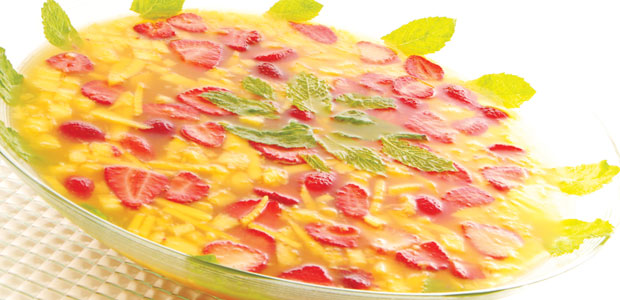Advertisement
Drinking for Thinking
What is it about a cup of warm tea that helps to soothe ragged nerves? Green tea, and other warm drinks such as yerba mate and rooibos tea, all boast health benefits, but the most important health benefit may be their ability to help us relax. Green tea may be popular because it has one-third … Continued

What is it about a cup of warm tea that helps to soothe ragged nerves? Green tea, and other warm drinks such as yerba mate and rooibos tea, all boast health benefits, but the most important health benefit may be their ability to help us relax.
Green tea may be popular because it has one-third the caffeine of regular tea, and does not bring on caffeine dependency and jitters. But those who prefer to drink green tea observe another benefit: its calming effect. Research from Japan reported last year in the European Journal of Physiology showed that even a whiff of jasmine green tea can help us relax in the same way that the scent of lavender calms jagged nerves.
A cup of brewed tea, however, is even better. Further Japanese research has shown that consuming green tea can change brain waves into the alert relaxed alpha state. In the early 1960s, Akira Kasamatsu and Tomio Hirai, physicians at the University of Tokyo, measured amplified alpha waves in 48 Zen masters and their disciples during meditation. Was it really their practice of meditation, or could it have been their green tea, traditionally served to Buddhist monks in the ground matcha form?
Current research has determined that green tea has a relaxing effect because of its nonprotein amino acid, theanine. Animal studies have shown that theanine can calm a state of anxiety. Now a study with 16 healthy Australians, published in Human Psychopharmacology (2000), shows that this amino acid may have some relaxing effects in humans if they take the tea while at rest.
Herbal teas are used in other cultures to enhance mental health and function. In South America the native Guarani people use the yerba maté plant (Ilex paraguariensis) as tea to calm depression, stimulate the mind, and fight fatigue. The active ingredient, mateine, is another plant form of the stimulant caffeine. This means that if you have trouble sleeping, you may want to be wary of too much of this good thing. Both green tea and yerbe mat?re excellent coffee substitutes when you need a little natural mental boost.
Rooibos tea (Aspalathus linearis), from South Africa, is caffeine free and non-stimulating, which makes it ideal for the end of the day and after dinner.
Take some time to brew and sip the tea of your choice and enjoy not only a gentle attitude adjustment but also improved mental health.
Recipes




